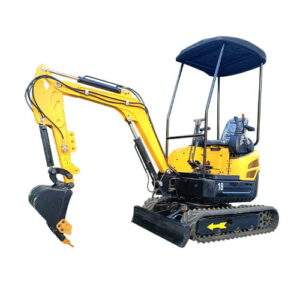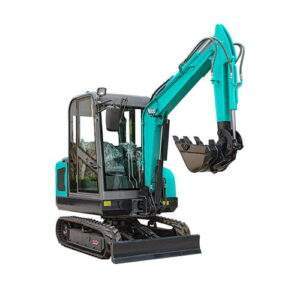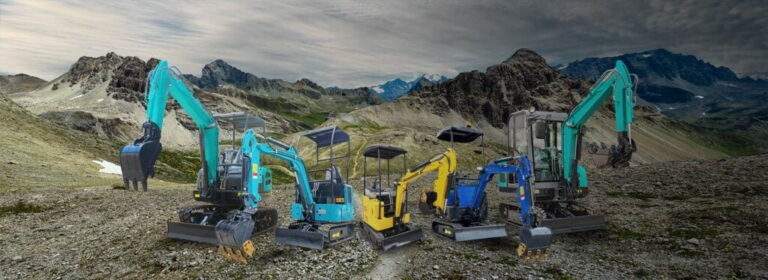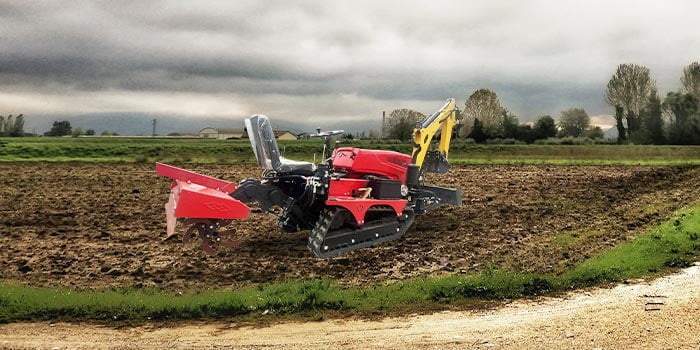Compact Power: The Advantages of Small Size Excavators
Welcome to My Blog!
Before we dive into the content, I’d love for you to join me on my social media platforms where I share more insights, engage with the community, and post updates. Here’s how you can connect with me:
Facebook:https://www.facebook.com/profile.php?id=61557298070472
Now, let’s get started on our journey together. I hope you find the content here insightful, engaging, and valuable.
Table of Contents
Introduction

Small size excavators, often referred to as mini excavators or compact excavators, have revolutionized the construction industry. These versatile machines offer a unique blend of power and precision, making them ideal for a wide range of applications. Their ability to navigate tight spaces, perform diverse tasks, and minimize environmental impact has made them indispensable tools for contractors and homeowners alike. In the following sections, we will delve deeper into the numerous advantages of small size excavators and explore why they have become such a popular choice.
The Power of Compactness
One of the most significant advantages of small size excavators is their compact design. Their smaller footprint allows them to access tight spaces that larger excavators simply cannot reach. This makes them perfect for working in urban areas, residential neighborhoods, indoor construction sites, and other confined environments where space is limited. Their ability to maneuver through narrow alleyways, crowded job sites, and even inside buildings significantly enhances productivity and reduces the need for extensive site preparation. Additionally, their compact size makes them easy to transport, allowing contractors to quickly move them between jobsites, saving time and reducing transportation costs.
Versatility: A Machine for All Seasons
Small size excavators are incredibly versatile machines that can be equipped with a wide range of attachments. From digging buckets and hammers to augers, grapples, and hydraulic breakers, these attachments allow small excavators to perform a diverse array of tasks.
- Digging and Excavation: With various bucket sizes and configurations, small excavators can efficiently dig trenches, foundations, and excavations for utilities, landscaping, and construction projects.
- Material Handling: Equipped with grapple attachments, small excavators can easily handle and transport materials such as rocks, debris, and logs, making them ideal for cleanup, demolition, and landscaping tasks.
- Demolition: Hydraulic breakers and demolition attachments allow small excavators to efficiently break up concrete, demolish small structures, and remove debris, making them valuable tools for renovation and construction projects.
- Utility Work: With augers and digging buckets, small excavators can easily install underground utilities such as water pipes, sewer lines, and electrical conduits, reducing the need for manual labor and increasing efficiency.
- Landscaping: Small excavators can be used to create ponds, level land, dig drainage ditches, and plant trees and shrubs, making them valuable tools for landscaping and gardening projects.
Environmental Impact
Small size excavators often have a smaller environmental footprint compared to their larger counterparts. They typically consume less fuel and produce fewer emissions, making them a more environmentally friendly choice. Moreover, their compact design means they can be transported more easily, reducing the need for long-distance travel and associated emissions. By minimizing their impact on the environment, small excavators contribute to sustainable construction practices.
Cost-Effective Solution
While the initial purchase price of a small excavator may be lower than a larger one, the long-term cost savings can be significant. Smaller machines generally require less fuel, have lower maintenance costs, and can be operated by a single person, reducing labor costs. Additionally, their versatility means that you can use them for a wider range of tasks, reducing the need to rent additional equipment. This can lead to significant cost savings over time, making small excavators a highly cost-effective solution for many projects.
Improved Safety
Small size excavators are designed with safety in mind. Many models come equipped with features such as rollover protection structures (ROPS) and falling object protection structures (FOPS) to protect the operator in the event of an accident. Additionally, their compact size and excellent visibility make them easier to maneuver, reducing the risk of accidents. By prioritizing safety, small excavators help to create a safer working environment for operators and those working nearby.
Key Features and Benefits of Small Size Excavators
| Feature | Benefit |
|---|---|
| Compact design | Access to tight spaces, increased maneuverability, easy transportation |
| Versatility | Wide range of attachments, multiple applications, increased productivity |
| Environmental friendliness | Lower fuel consumption, reduced emissions, sustainable practices |
| Cost-effectiveness | Lower operating costs, versatile use, reduced labor costs |
| Improved safety | ROPS, FOPS, excellent visibility, reduced risk of accidents |
Ideal Applications

Small size excavators are ideal for a wide range of applications, including:
- Residential construction: Digging foundations, installing septic systems, creating ponds, and landscaping.
- Commercial construction: Site preparation, utility installation, demolition, and landscaping.
- Industrial applications: Material handling, maintenance, and repair work in factories and warehouses.
- Agricultural work: Digging post holes, creating drainage ditches, and loading materials.
- Municipal work: Road repair, utility maintenance, and disaster response.
Conclusion
Small size excavators have become essential tools for contractors and homeowners alike. Their compact design, versatility, cost-effectiveness, and safety features make them an excellent choice for a wide range of applications. By understanding the advantages of small size excavators, you can make informed decisions about your equipment needs and maximize the benefits of these powerful and efficient machines.
FAQ
What is the difference between a mini excavator and a compact excavator?
While the terms are often used interchangeably, there is a subtle difference. Mini excavators are typically smaller and lighter, often under 10 tons, and are designed for residential and light commercial use. Compact excavators are larger, typically between 10 and 20 tons, and are more suited for heavier construction and industrial applications.
What size excavator do I need for my project?
The appropriate size of excavator for your project depends on various factors, including the scale of the project, the type of soil, the depth of excavation, and the required attachments. It’s best to consult with a rental company or equipment dealer to determine the optimal size for your specific needs.
What attachments are available for small size excavators?
Small size excavators can be equipped with a wide range of attachments to enhance their versatility. Common attachments include:
Digging buckets: Various sizes and configurations for different digging tasks.
Hydraulic hammers: For breaking concrete and rocks.
Augers: For drilling holes for posts, fences, and utilities.
Grapples: For handling materials such as logs, debris, and rocks.
Hydraulic breakers: For demolition and heavy-duty breaking tasks.



